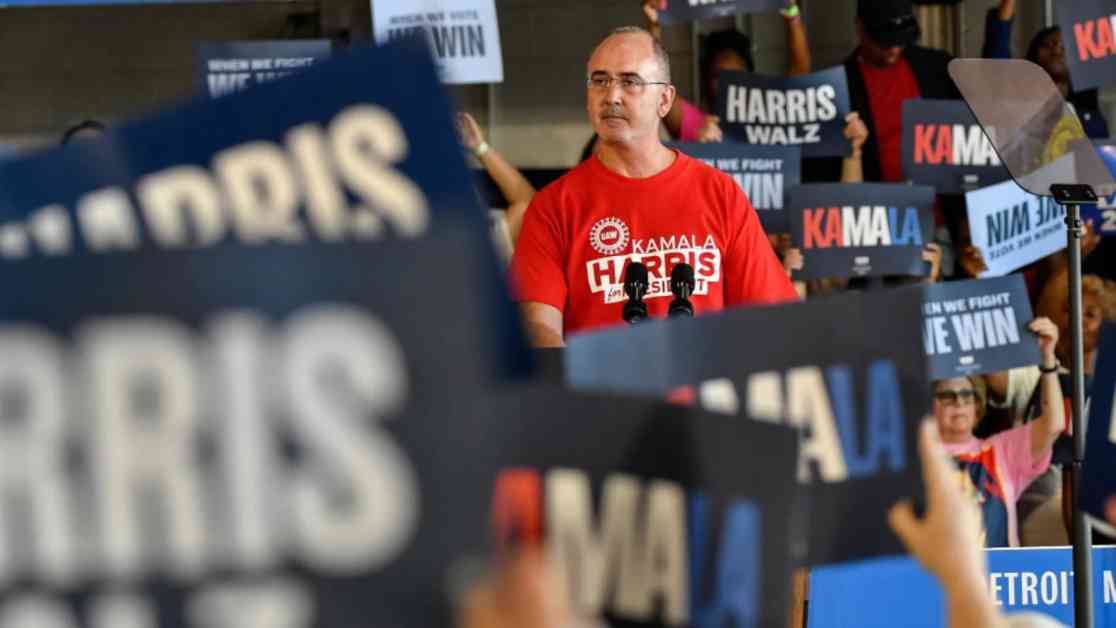U.S. presidential candidate Kamala Harris recently secured the endorsement of the United Auto Workers (UAW), a significant step in her campaign. However, the real challenge lies in winning over the support of the nearly 400,000 members of the union. The UAW’s endorsement could be a determining factor in the battleground state of Michigan, where union households have historically leaned towards Democratic candidates.
While polls show Harris leading nationally ahead of the upcoming election, securing votes in Michigan, a crucial state, is vital for her success. Union households in Michigan have played a key role in supporting Democratic candidates in recent elections, making them a coveted voting bloc for Harris.
President Donald Trump has also made efforts to appeal to union members and blue-collar workers across the country. Despite this, the UAW’s endorsement of Harris signals a strong commitment to her campaign and could potentially mobilize significant resources in support of her candidacy.
The endorsement by the UAW’s executive board does not guarantee unanimous support from all UAW members, but it does provide a significant boost to Harris. The backing of the UAW includes financial support and voter mobilization efforts, which could prove crucial in a closely contested election.
Harris’ track record on issues such as corporate accountability and unfair trade practices has resonated with union members, highlighting a clear contrast between her and President Trump. The UAW’s endorsement underscores the belief that Harris will advocate for working people, while Trump aligns more with corporate interests.
Some UAW members, however, remain steadfast in their support for Trump, citing his policies on trade and manufacturing. Groups like “Auto Workers for Trump” have emerged, showcasing a division within the union membership. Despite this, Harris continues to gain support from a significant portion of UAW members who believe in her vision for the future.
The transition to electric vehicles (EVs) is another critical issue for auto workers in Michigan. While some support Trump’s stance on preserving traditional manufacturing jobs, others see the potential of EVs in securing future employment opportunities. Harris will need to address concerns around job security and the impact of EVs on the auto industry to win over workers like Elija-Blu Lampkin.
As the election approaches, Harris faces the challenge of maintaining and expanding her support among UAW members in Michigan. The battleground state could be a deciding factor in the outcome of the election, making the UAW’s endorsement a significant milestone in her campaign. The contrasting visions of Harris and Trump on key issues like manufacturing, trade, and EVs will shape the choices of union members as they head to the polls in November.










